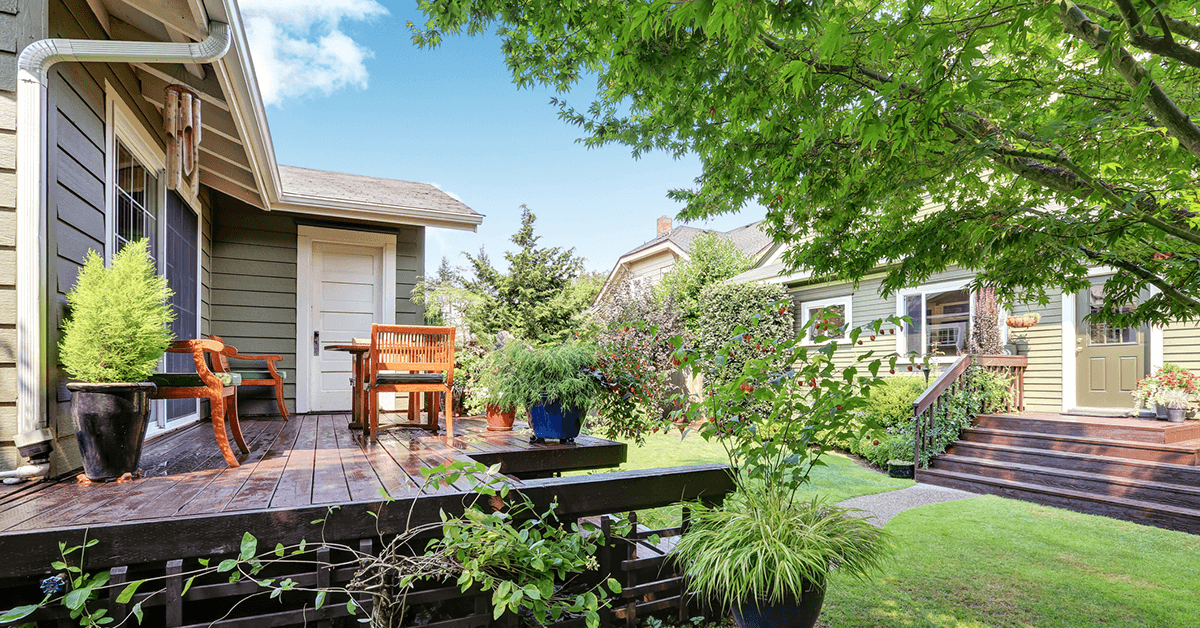
The Possible Return of Coach Houses in Illinois and What it Means for Homeowners and Buyers
Granny flats, mother-in-law suites, carriage houses: these may seem like outdated real estate terms used to describe a bygone era of housing. But no matter what you call them, accessory dwelling units (ADU), independent units on single-family lots with complete facilities for one or more persons, are gaining popularity again.
The ADU’s that originally fell out of style after baby boomers returned home from World War II are appealing to the eco-conscious, money-savvy homeowners and buyers of today. Illinois is working hard to overturn the resistance against building and renovating ADUs. The proposed bill HB 4869 would prohibit any unit of local government from banning second living units on a residential property.
According to an article on Crain’s Chicago Business website, for cities like Chicago ADU’s offer “affordably priced housing stock where people want it – in established neighborhoods with good schools, transportation, and shopping – rather than out at the fringes of the suburbs.” Popular upscale suburbs like Evanston and Oak Park have made moves to allow ADUs. Accessory Dwelling Units give more people access to the resources of high-income communities, they reduce the environmental impact of sprawl, and boost housing affordability for the workforce.
However, Chicagoland REALTOR® Frank Scaletta, with Interdome Inc., worries that promoting construction in well-established neighborhoods will deter investors from developing portions of the city that could use the attention. “Chicago has so many great neighborhoods that are not developed and have amazing homes and tons of abandoned lots that are not expensive and can use rehabbing or developing.” He says, “When prices go up in more established communities it naturally pushes development in areas that have been neglected.” He worries that providing more housing in already developed neighborhoods will eliminate the drive to develop these other areas. Scaletta also anticipates that an increase in ADUs will cause an increase in parking trouble. “ADUs will add more cars in an area that perhaps can’t accommodate parking as it is. Even if you keep an existing garage, you are still adding a family without adding parking.” ADU’s seem to make some sense for cities, but is owning a property with an accessory dwelling unit right for you?
ADU’s provide homeowners with a unique way to make money on their investment. They are also appealing to non-nuclear, multi-generational families and caregivers. Paul Bertch, a principal of Chicago-based home building firm CA Development, noted that homeowners might use an ADU in different ways as they move through life stages. “You rent it when you’re young and need the money,” he said, “and later you have a place to house your kid who boomerangs back home.”
Some cities are incentivizing homeowners to build ADU’s with programs that reduce the cost of construction if the unit is rented when complete. San Francisco has a program supporting ADUs. The city is offering homeowners financial assistance, project management, and permit fee waivers among other things to ease the stress on homeowners. Currently, there are no large scale programs like these available to Illinois residents.
Before you jump on the bandwagon and convert your basement or garage, or buy a home with a completed ADU, you should be aware of the challenges that come along with this type of structure. Financing an ADU may be complicated and costly. And, while adding an ADU will likely increase the value of your property, your taxes are likely to increase as well. Not to mention the loss of privacy that comes along with having your tenants living, literally, in your backyard. Before beginning an ADU conversion, or buying a property with an ADU that you plan to rent, check into your city’s rental restrictions for long and short term rentals. In Chicago, the ordinance against ADU’s has been delayed over concerns that some people would build them strictly for use as Airbnb-style short-term rentals.
A report from Zillow estimated that loosening the restrictions on ADUs would make room for a quarter-million new housing units in the Chicago area. Like any home-buying decision, there are certain risks and rewards. This throwback housing option might be the answer for homeowners looking to offset the cost of living in high-income cities or for renters looking to reap the benefits of the resources of well-established communities.
Time to Focus on Affordable Housing
Taxes on real estate are not the answer. Sign the petition calling on Congress to address our country’s housing shortage.





